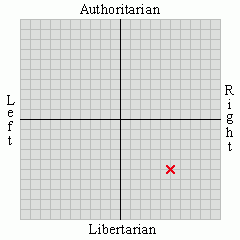Thursday, 28 May 2009
PR and Mrs Rigby.
Sometimes things make Mrs Rigby feel a bit nice but dim, Proportional Representation has been one of those things.
Some politicians have been raising the idea that the current "First past the post" system of parliamentary elections is really unfair, for a few reasons.
a) The smaller political parties don't get many seats, if any.
b) The people who've voted for the smaller parties aren't represented
c) First past the post winner rarely gets "most" votes when all the votes cast for other parties are added together.
The CBBC site, probably says it better; the "Single Transferable Vote", or STV, has an explanation in Wikipedia - it's miles too long to repeat here; "Alternative Vote Plus" is explained by the BBC and "Additional Member System" is described by the Electoral Reform Society, which has a careful explanation of all PR voting systems.
Looking at these various ideas Mrs R has begun to wonder PR originates from the same sort of "It's not fair!" that's bleated out again and again when somebody gets a prize and loads of other people - who have tried hard - don't.
She wonders if it's the same sort of, "It's not fair" and "everybody should be equal" that totally confused Little Miss Rigby when she was seven and had her first school sports day. The children had to show off their ball skills and run races that weren't (to make sure nobody could be last) but unfortunately there were no real winners either, because everybody got a sticker before they went home. The teachers were delighted that nobody had ended the day in tears.
Now, you can't pull the wool over children's eyes - they know when they're being conned, and these children knew very well they hadn't done anything worthy of a special sticker - because it wasn't the same as getting one when they tried very hard with their colouring, got all their sums right, did some writing with no mistakes or read carefully during assembly.
Mrs Rigby has some simple examples of why she does not think PR is a good idea - not least because it's way outside our culture. She is also wondering who is trying to pull the wool over her eyes
In the real world there are winners and losers.
When a job is advertised there may be hundreds of applicants who will each have spent hours filling in complicated forms - they'll all have tried very hard, they'll each have done their very best, but at the end of it the employer will check Jacqui Smith's or Harriet Harman's rules about equal opportunities, and then choose the person they think is most suited for the job that's on offer.
Britain's Got Talent will end up with one winner - who will be chosen by public vote - the one with the highest number of votes wins. There's no question of ticking loads of different boxes to make it "fair" and "equal", it's simple maths and completely ignores the total number of votes cast, for all acts, when added together.
Musical hits are the ones with the highest sales; the winners in the marketplace are selected by sales volume, nothing else. In fact almost everything we touch is decided by a clear difference, not by some intricate formula designed to "make it fair".
So Mrs R looked a bit deeper, she thought it was really odd that a few years ago people like Gordon Brown thought PR was a silly idea, but high-ups in the Labour Party think it's great now - why?
Is it because somebody thinks his political party might not do very well at the next election?
Mrs R thinks this might be the case, she's realised that PR often leads to coalitions because it's hard to get a clear winner and she thinks somebody is getting rather desperate to cling to power, believing it's their right to lead this country. So, how are they going to manage to retain power - by Proportional Representation of course!
Hah!
No thank you!
Subscribe to:
Post Comments (Atom)





No comments:
Post a Comment